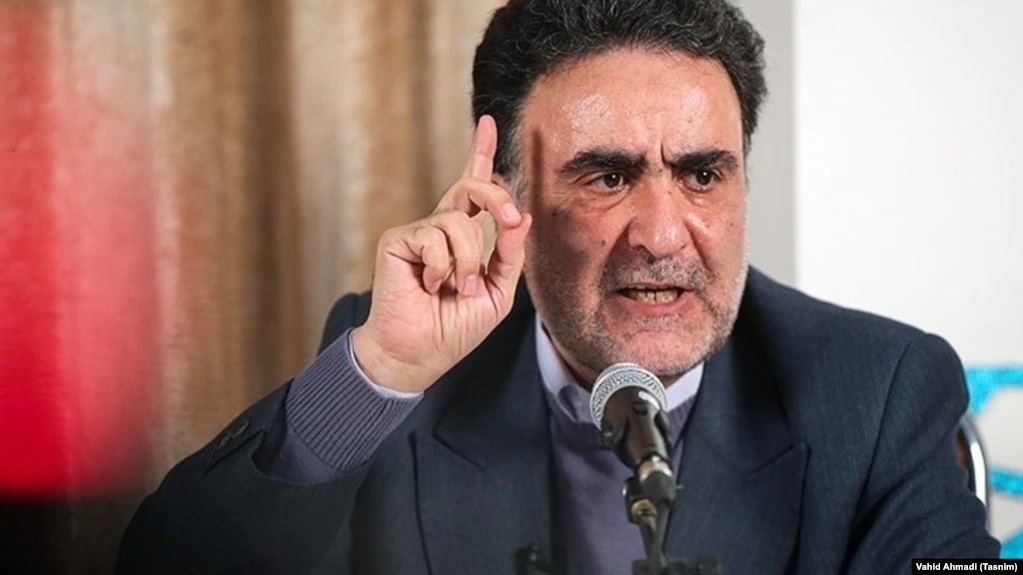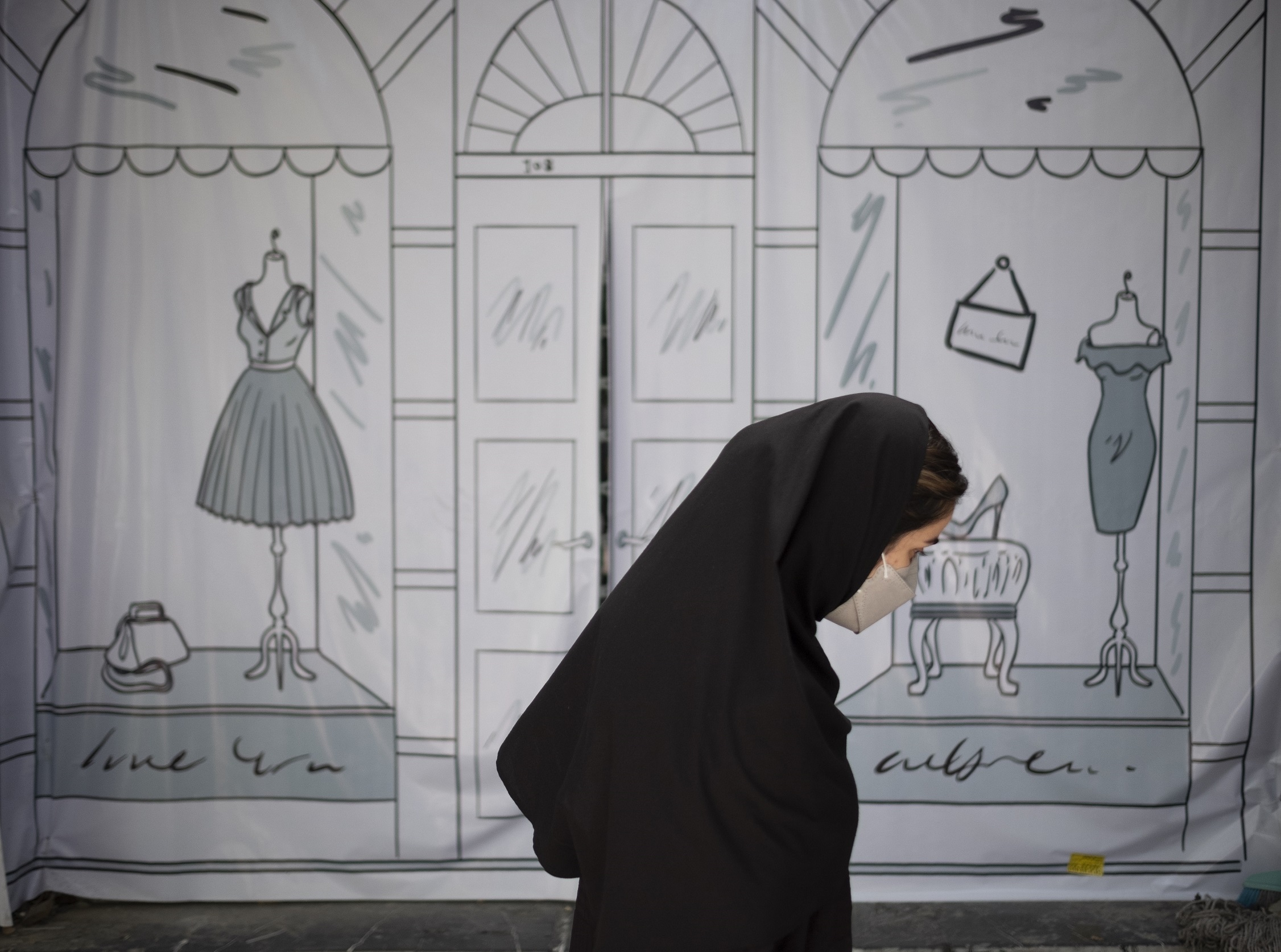Publications
INSS Insight No. 1620, July 19, 2022
Recent weeks have seen renewed escalation of repressive political and civil measures by the Iranian authorities. Since early July, the security forces have arrested Mostafa Tajzadeh, a leading reformist political activist, as well as three prominent filmmakers regarded as critics of the regime. At the same time, the authorities, led by President Raisi, have stepped up the campaign for enforcing an Islamic dress code. Underlying the growing repression is the mounting popular protest in recent months, intensification of internal disputes within the conservative camp, and the recent personnel changes at the top of the security-intelligence establishment. The current crackdown reflects the continued failure of the Islamic Republic to provide solutions to the public’s demands resulting from the worsening economic crisis, and constitutes additional evidence of the regime’s increasingly autocratic character. In the short term, this growing repression is likely to help the regime deal with its internal challenges. At the same time, in the long term, it is likely to further widen the gap between the regime and the people, and to bolster extremist tendencies among the public.
Recent weeks have seen renewed escalation of repressive political measures and enforcement of the Islamic dress code by the Iranian authorities. On July 8, 2022, the Iranian security forces arrested leading reformist politician Mostafa Tajzadeh, who was accused of acting against national security and spreading lies in order to incite public opinion. Tajzadeh, who served as Deputy Interior Minister in the cabinet of reformist President Mohammad Khatami in the late 1990s, already spent seven years in prison following his support for the 2009 protest movement. In June 2021, the Guardian Council disqualified Tajzadeh's candidacy in the presidential elections. He is regarded as a severe critic of the regime, and recently accused Supreme Leader Ali Khamenei of responsibility for the failure of the efforts to resurrect the nuclear agreement.
The arrest of the senior reformist politician drew mixed responses in Iran. Supporters of the regime in the conservative camp welcomed the measure and justified it on grounds of state security. The pro-regime daily Kayhan alleged that prominent reformist activists such as Tajzadeh were linked to foreign intelligence services, and accused them of treason. The reformist camp, on the other hand, severely criticized the arrest, claiming, inter alia, that increasing political persecution of reformist activists would strengthen "subversive" radical elements, among them opponents of the regime who support the restoration of the monarchy and who aim to replace the entire regime, rather than implement gradual reforms. Indeed, responses on the social networks by opponents of the regime argued that Tajzadeh's arrest proved yet again the failure of the reformists' approach and the uselessness of striving for political change through limited reforms.

A few days after Tajzadeh was arrested, the security forces arrested three filmmakers: Mohammad Rasoulof, Mostafa Al-e Ahmad, and Jafar Panahi. Al-e Ahmad and Rasoulof were accused of "disseminating anti-revolutionary propaganda" and "inciting unrest and disrupting emotional public security." They were among the signers of a petition sent recently by 100 prominent film personalities demanding that the security forces lay down their arms and refrain from participating in the violent suppression of demonstrators. The petition was initiated in response to riots that broke out in late May after the Metropol building in the southern Iranian city of Abadan collapsed on May 23, killing dozens of people. Jafar Panahi, one of the most prominent filmmakers in Iran, was arrested after accompanying a group of cinema personalities on their way to the infamous Evin Prison in Tehran, where Rasoulof and Al-e Ahmad are imprisoned, as a protest against their arrest and in order to find out about their condition. Panahi and Rasoulof, winners of international cinema prizes, were previously arrested following the 2009 riots, and were forbidden to leave Iran.
At the same time, the Iranian authorities stepped up enforcement of the Islamic dress code, especially the hijab. In early July, President Ebrahim Raisi declared that disobeying the dress laws constituted "organized promotion of moral corruption in Islamic society," and demanded that all government institutions strictly enforce these laws. Raisi thereby expressed a view contrary to that of former President Hassan Rouhani, who supported scaling down enforcement of the Islamic dress code, although opposition by the conservative religious establishment prevented him from achieving any real change in the regime's policy. As part of this increase in enforcement, the deputy prosecutor in the city of Mashhad sent a letter to the province governor demanding that women who do not wear a veil be prevented from using public transportation and services in municipal government offices and banks. Furthermore, the "modesty police" have expanded enforcement of the Islamic dress code in medical centers throughout the city. In addition, Bank Mellat, one of the largest banks in Iran, issued a directive prohibiting female employees from wearing high-heeled shoes and stockings. It is also barring its male managers from employing women as administrative assistants.
Islamic enforcement is a routine matter in Iran, especially with summer approaching. Nevertheless, intensified enforcement of the Islamic dress code reflects above all the conservative establishment's realization that people are not strictly observing the rules, especially the younger generation, as part of the accelerated secularization processes in Iranian society. In late June, several organizers of a social gathering for young men and women were arrested in the southern Iranian city of Shiraz. A video documenting the participants meeting and gliding on skateboards in open violation of the Islamic dress code went viral.
Part of the Iranian public regards enforcement of the hijab as an expression of the Islamic regime's suppression of women, which has sparked opposition in Iran since the Islamic Revolution. Protest on this issue has increased in the past decade, reaching a peak in 2018, when dozens of women gathered in the streets in a number of important cities, especially in Tehran, and removed their head coverings in defiance of the hijab requirement. In response to the stepped up enforcement in recent weeks, civil activists called on women to take to the streets without a veil on July 12, which the authorities have declared to be Hijab and Modesty Day. Reports on the social networks indicate that several dozen women answered this call. A day earlier, the authorities arrested several members of the Mothers for Justice organization, apparently because they planned to take part in demonstrations against the veil. This organization consists primarily of mothers whose children were killed in confrontations with the security forces during the gasoline demonstrations in November 2019.
Three main developments underlying the increased repression can be cited. The first is the growing popular protest in recent months, mainly in response to the worsening economic crisis. Demonstrations protesting double or triple-digit percentage hikes in the prices of flour, cooking oil, eggs, poultry, and dairy products erupted in May 2022, after the government decided to eliminate the official subsidized exchange rate for imports of basic food products and medicine. Demonstrations began in late May in several cities in southwestern Iran, following the collapse of the high-rise building in Abadan. The ongoing stalemate in the nuclear talks and the dwindling chances that the sanctions on Iran will be removed also contribute to the mounting feeling of public despair. These events have not escaped the attention of the Iranian leadership. In his recent speeches, Supreme Leader Khamenei warned of the possibility that "reactionary" supporters of the West would regain the power they enjoyed in Iran before the Islamic Revolution, and called for increased enforcement against opponents of the regime and for imposing additional restrictions on the internet and social media
Second, the internal disputes within the conservative camp have escalated, and criticism of President Raisi is growing, even among conservative politicians, media, and clerics. This criticism reflects spiraling dissatisfaction with the President's actions, particularly in economic affairs, and his failure to alleviate the mounting economic crisis. These internal disagreements are likely to encourage the conservatives in control of the main power centers, including the security and law enforcement agencies, to renew their repressive measures against their traditional political rivals in the reformist camp.
Third, there have recently been leadership changes in the intelligence establishment, centered around the dismissal of Hossein Taeb as head of the Islamic Revolutionary Guards Intelligence Organization, following a series of failures in the covert war between Iran and Israel. The increase in political and civil repression likely reflects the regime's concern that the public will perceive the recent changes in the security-intelligence establishment as weakness. The stepped-up suppression can be regarded as a message from the regime to its opponents that its ability to handle internal challenges has not been affected.
In conclusion, the current crackdown is an expression of the authorities' failure to respond to the people's demands and the growing feelings of despair and frustration among the public. It also constitutes additional evidence of the regime's increasingly autocratic character, especially since the conservatives gained control of all the main power centers in the country with the election of President Raisi in June 2021. In the absence of solutions to the fundamental problems facing the Islamic Republic, the regime is escalating its political and civil repressive measures as part of its efforts to neutralize possible risks to its stability. Although in the short term these measures are likely to help the regime deal with its internal challenges, in the long run, they stand to widen further the gap between the regime and the people and to bolster extremist tendencies among the public.



